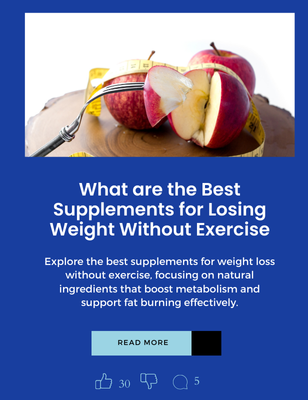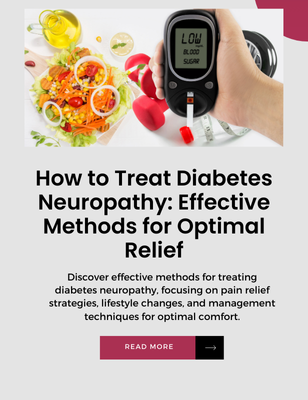Determining the most effective weight loss supplement can be challenging with the plethora of products on the market. Weight loss is a common goal for many individuals, and dietary supplements that promise to assist in this process attract significant attention. These supplements come in various forms, including pills, powders, and teas, each claiming to offer a solution to weight loss challenges. However, the effectiveness of each supplement can vary based on its active ingredients, the individual’s body chemistry, and lifestyle factors.

When considering weight loss supplements, it’s essential to understand that no single product is a magic bullet. Success often requires a combination of a well-balanced diet, regular exercise, and possibly the addition of a supplement that supports these lifestyle changes. Some supplements may help by boosting metabolism, reducing appetite, or blocking the absorption of fat, but their effects must be evaluated in the context of an overall health plan. It is also crucial to consider the potential risks and side effects associated with any supplement, as well as how it might interact with other medications or conditions.
Key Takeaways
- Effectiveness of weight loss supplements varies based on ingredients and individual factors.
- Supplements should complement a balanced diet and exercise regimen, not replace it.
- Potential risks and interactions with other medications should be considered when choosing supplements.
Understanding Weight Loss

Achieving weight loss fundamentally involves creating a calorie deficit, where the body expends more calories than it consumes. This process is closely tied to fat metabolism and metabolic rate, which play crucial roles in determining how quickly one can lose weight.
The Science of Weight Loss
Weight loss occurs when caloric expenditure surpasses caloric intake, prompting the body to burn stored fats for energy, a process known as fat metabolism. The body’s metabolic rate, or the speed at which it burns calories, is influenced by various factors, including genetics, hormonal balance, physical activity, and diet. Enhancing one’s metabolic rate can be a strategy to accelerate weight loss, as a higher metabolism means more calories are burnt throughout the day, even at rest.
- Burn Calories: Physical activities ranging from aerobic exercises to strength training increase the number of calories burned.
- Fat Metabolism: The body breaks down fats in complex biological processes, releasing energy and reducing fat stores.
Factors Influencing Obesity
Obesity is a multifaceted health condition that can be the result of numerous influencing factors, each affecting weight in different ways:
- Genetic Predisposition: Some individuals have a genetic propensity that can affect their metabolic rate and fat storage patterns.
- Dietary Habits: High-calorie diets with low nutritional value are significant contributors to weight gain and obesity.
- Activity Level: Sedentary lifestyles contribute significantly to obesity; regular physical activity is critical for maintaining a healthy weight.
- Metabolic Disorders: Conditions such as hypothyroidism can lower metabolic rates, making weight loss more challenging.
Managing obesity effectively requires understanding these factors and how they interact with an individual’s unique physiological makeup. It is essential to approach weight loss with a holistic, personalized plan that considers all possible contributing factors.
Dietary Supplements for Weight Management
When exploring weight loss options, dietary supplements are often considered for their potential to assist in weight management. These products may contain a range of ingredients including vitamins, minerals, herbs, fiber, and other nutrients that are marketed to support weight loss.
Role of Supplements in Weight Loss
Dietary supplements are typically utilized to enhance a traditional weight loss regimen of diet and exercise. They may serve to:
- Optimize nutrient intake: Supplements can fill dietary gaps to ensure that one obtains the essential nutrition needed during calorie restriction.
- Support metabolic health: Certain vitamins and minerals can contribute to the proper metabolic function, which may help the body process macronutrients more efficiently.
- Increase satiety: Ingredients like fiber may prolong the feeling of fullness after eating, which helps control appetite and decrease calorie consumption.
While some supplements are backed by clinical research, the effectiveness of these products can vary significantly among individuals.
Natural vs. Synthetic Supplements
Natural supplements are derived from food sources and tend to be favored for their perceived purity and synergy with the body’s biochemistry. They can include compounds extracted from herbs and plants, such as green tea extract known for its metabolic benefits.
On the other hand, synthetic supplements are manufactured through chemical processes and are designed to mimic the way natural nutrients work in the body. While they can provide consistent and concentrated dosages of active ingredients, they may lack the complementary compounds found in whole-food-derived supplements.
It’s crucial to evaluate the evidence supporting the efficacy of a supplement, whether natural or synthetic, and to consider any potential interactions or side effects. Consumers are advised to consult with healthcare professionals before starting any supplement regimen.
Assessing Supplement Efficacy

In determining the best weight loss supplement, evaluating scientific evidence and understanding regulatory oversight are crucial. The focus is on scrutinizing clinical data and examining how the FDA regulates these products to ensure consumer safety and product efficacy.
Evaluating Research and Clinical Trials
Researchers study weight loss supplements through clinical trials to measure their effectiveness and safety. These studies should be peer-reviewed and preferably published in reputable medical journals. For a supplement to be considered adequate, it should demonstrate a statistically significant impact on weight loss in a considerable sample size over a placebo. For example, a systematic review of dietary supplements assessed alternative therapies for weight loss and emphasized the importance of robust clinical trial design to validate claims made by supplement manufacturers.
The FDA’s Role in Supplement Regulation
The U.S. Food and Drug Administration (FDA) plays a pivotal role in regulating dietary supplements. Although the FDA does not formally approve dietary supplements for safety and efficacy before they enter the market, they hold manufacturers accountable for ensuring their products are safe for consumption and that any claims are truthful and not misleading. Any supplements found to contain dangerous ingredients or that cause harmful effects can be subject to FDA enforcement actions. This regulatory framework aims to protect consumers while providing them with options for weight management.
Popular Weight Loss Supplements
The effectiveness of weight loss supplements can vary significantly, with some aiding in metabolism and others in muscle maintenance. The most popular ones often contain active ingredients like caffeine, fiber, or protein, which can support various aspects of weight loss from appetite suppression to increased fat burning.
Caffeine-Based Supplements
Caffeine is widely recognized for its ability to increase alertness and provide a temporary boost in metabolism. Supplements containing caffeine can enhance calorie burn and facilitate fat loss. Common sources include green coffee bean extract and guarana.
Fiber Supplements and Satiety
Fiber supplements, particularly those with soluble fiber, are known to promote fullness and reduce hunger. Ingredients such as Psyllium husk can aid in creating a feeling of satiety, potentially leading to lower calorie intake and gradual weight loss.
Green Tea Extract and Metabolic Boosters
Green tea extract is lauded for its high concentration of antioxidants and its ability to assist in metabolic rate enhancement. Rich in catechins, green tea extract synergizes with caffeine to further stimulate fat burn, making it a staple in many weight loss formulas.
Protein Powders and Muscle Maintenance
Protein powders are essential for preserving lean muscle mass during weight loss, providing the building blocks for muscle repair and growth. They can also promote satiety, with whey protein being a popular choice for its high biological value and rapid absorption.
Potential Risks and Side Effects
When considering weight loss supplements, it’s crucial to be aware of potential side effects that could impact your well-being. These can range from mild discomforts in the short term to serious health implications over time.
Short-Term Side Effects
Various weight loss supplements have a list of common side effects that users might experience shortly after commencing their regimen. These symptoms can include:
- Constipation: A possible reaction due to the alteration of the digestive process.
- Diarrhea: Some supplements may induce loose stools or increased bowel movements.
- Elevated Heart Rate: Stimulants found in weight loss supplements can lead to a temporary increase in heart rate.
- Anxiety: Ingredients like caffeine may heighten feelings of jitteriness and nervousness.
- Insomnia: Stimulatory effects can interfere with regular sleep patterns.
- Restlessness: A state of unease or agitation might be triggered by active compounds in supplements.
Long-Term Health Risks
Long-term use of weight loss supplements may pose more serious health risks, such as:
- Liver Damage: Some supplements can cause hepatotoxicity, leading to impaired liver function or liver injury.
- High Blood Pressure: Certain components have the potential to chronically elevate blood pressure.
- Dependency: Psychological or physiological reliance on supplements can develop over time.
Adverse effects vary by individual and are influenced by the specific composition of the supplements, dosage, and duration of use. It’s recommended to consult with healthcare professionals before starting any supplement regimen.
Special Considerations

When considering weight loss supplements, it’s essential to be mindful of the specific circumstances that could affect their suitability and safety. Here, key factors such as pregnancy and pre-existing health conditions will be discussed, which must be taken into account before commencing any supplement regimen.
Weight Loss Supplements and Pregnancy
Pregnancy necessitates increased caution with any supplementation. Women who are pregnant or planning to become pregnant should avoid most weight loss supplements, as they can potentially harm the developing fetus. For instance, high blood pressure, a common concern during pregnancy, could be exacerbated by certain supplements. It’s crucial to consult a doctor before considering any weight loss products during this sensitive time.
Supplements and Pre-Existing Health Conditions
People with pre-existing health conditions, such as cardiovascular issues or diabetes, should approach weight loss supplements with caution. Some products may interact adversely with medications, and ingredients like caffeine or synephrine could significantly impact conditions like high blood pressure. An individual’s doctor can provide tailored advice, considering any existing conditions and the specific treatments they are receiving. Especially when overweight, managing health conditions should take precedence over unsupervised weight loss efforts.
Supplements vs. Lifestyle Changes

When considering weight loss options, individuals should assess the effectiveness and sustainability of dietary supplements versus lifestyle changes. It’s crucial to weigh the benefits of a supplement-driven approach against the long-term results commonly associated with diet and exercise modifications.
Diet and Exercise
Diet and exercise form the cornerstone of sustainable weight management. A balanced diet loaded with fruits, vegetables, lean proteins, and whole grains, paired with regular physical activity, can help individuals burn fat and maintain a healthy weight over time. For instance, incorporating moderate-intensity exercise such as brisk walking for at least 150 minutes a week is recommended for substantial health benefits.
Sustainable Weight Loss Strategies
On the other hand, dietary supplements may offer a temporary boost but often fall short in providing long-term results. While certain supplements claim to promote energy and help with weight reduction, the effectiveness of these supplements varies, and in some cases, they come with potential side effects. As noted by Mayo Clinic, some supplements can have strong effects and risks. Therefore, for sustainable weight loss, combining lifestyle interventions such as mindful eating and regular physical activity is key to achieving and maintaining a healthy weight.
Misconceptions About Weight Loss Supplements
In the quest for weight reduction, many individuals turn to weight loss supplements, drawn in by promises of rapid and effortless results. However, misconceptions surrounding these products are widespread and need clarification.
Quick Fixes and Placebo Effects
Quick fixes are a pervasive myth in the weight loss supplement industry. The belief that a pill or a powder can dramatically accelerate weight loss without the need for diet or exercise is misleading. The National Center for Complementary and Integrative Health asserts that no weight loss supplements have been convincingly shown to provide effortless weight reduction. Additionally, the placebo effect—a patient’s perceived improvement due to their expectations rather than the actual efficacy of a treatment—can mislead users into thinking a supplement is working when any changes may not be due to the product itself.
Marketing Myths
The marketing of weight loss supplements often includes bold and unfounded claims. Terms like “melt away fat” and “lose weight naturally” create a Marketing Myth that these supplements have nearly magical effects. In reality, the National Institutes of Health emphasizes that weight loss is a complex process, not easily solved by supplements alone. Effective weight management typically involves a sustained commitment to a healthy diet and regular physical activity. The promise of a quick, easy solution is, for many, simply too good to be true.
Supplement Interactions and Contraindications

When considering weight loss supplements, it is imperative to understand how they might interact with medications and what steps can be taken to minimize potential adverse effects. Safety should always be a primary concern, and consulting a doctor before starting any supplement is crucial.
Interactions with Medications
Caffeine is a common ingredient in weight loss supplements known for its stimulant properties. However, it can interact with a variety of medications, including but not limited to those treating depression, diabetes, and high blood pressure. For instance, caffeine can reduce the effectiveness of sedatives and increase the speed at which some medications, like lithium, are processed by the body.
Bitter orange, another ingredient sometimes found in weight-loss products, can lead to elevated blood pressure and increased heart rate, especially when combined with other stimulants like caffeine. This combination can be dangerous for those with cardiovascular conditions.
Minimizing Adverse Effects
To minimize adverse effects, individuals should adhere to the following guidelines:
- Begin with the lowest possible dose to assess tolerance.
- Systematically track and monitor any side effects.
- Avoid supplements containing ephedra or its alkaloids, as they have been banned by the FDA due to serious health risks, such as heart attack and stroke.
- Green coffee extract, which is high in caffeine and may affect blood sugar levels, should be used with caution, especially in those with diabetes.
Awareness of these factors and ongoing communication with healthcare providers ensure the safest approach to using weight loss supplements.
Conclusion

In navigating the landscape of weight loss supplements, the evidence points to a few that stand out based on their potential to facilitate calorie burning and contribute to sustainable weight loss when combined with healthy lifestyle changes.
Summary of Effective Supplements
Weight loss supplements can modestly aid in weight loss efforts, primarily through increasing metabolism or reducing absorption of fat. Supplements such as green tea extract and caffeine have evidence to support their ability to burn calories. Green tea extract, rich in catechins, has been linked to increased calorie burning and is featured in Forbes Health’s review of top supplements. Fiber supplements, like glucomannan, contribute to a feeling of fullness, potentially leading to lower calorie intake. Meanwhile, conjugated linoleic acid (CLA) has been shown to promote a modest fat loss, as detailed by the Mayo Clinic.
Final Recommendations
In choosing a weight loss supplement, individuals should opt for products with ingredients that have a history of safety and effectiveness. It is crucial to combine these supplements with healthy lifestyle changes, such as a balanced diet and regular physical activity, to achieve sustainable weight loss. Additionally, one must consult with healthcare providers before starting any supplement, especially to ensure they do not interfere with existing health conditions or medications.
Frequently Asked Questions

When searching for an effective weight loss supplement, individuals typically have several inquiries regarding the best available options. The following commonly asked questions provide answers based on current research and expert recommendations.
What are the top recommended supplements for women seeking weight loss?
For women targeting fat loss, supplements like Leanbean are often recommended due to their potency and ingredient profiles tailored for women’s metabolic needs.
Which natural supplements are known to aid in weight loss effectively?
Natural supplements such as green tea extract and conjugated linoleic acid (CLA) have been recognized for their potential to support weight loss through fat oxidation and metabolism enhancement.
For individuals over 50, which vitamins are associated with weight loss?
Vitamins that support metabolism, such as Vitamin B12 and Vitamin D, are often emphasized for individuals over 50 to aid in maintaining a healthy weight.
What are the most successful weight loss pills available on the market?
Weight loss medications that are FDA-approved, such as orlistat and semaglutide, have demonstrated success in clinical trials, indicating their effectiveness when used alongside a balanced diet and exercise.
In terms of efficacy, what is considered the best supplement for weight loss?
No single supplement can be universally declared the best due to individual differences in response, but prescription medications like orlistat have been widely studied and are considered effective for weight loss.
What are the leading weight loss products recognized for their results?
Weight loss products such as PhenGold and Instant Knockout have been recognized for their results in both weight management and supporting athletic performance.














